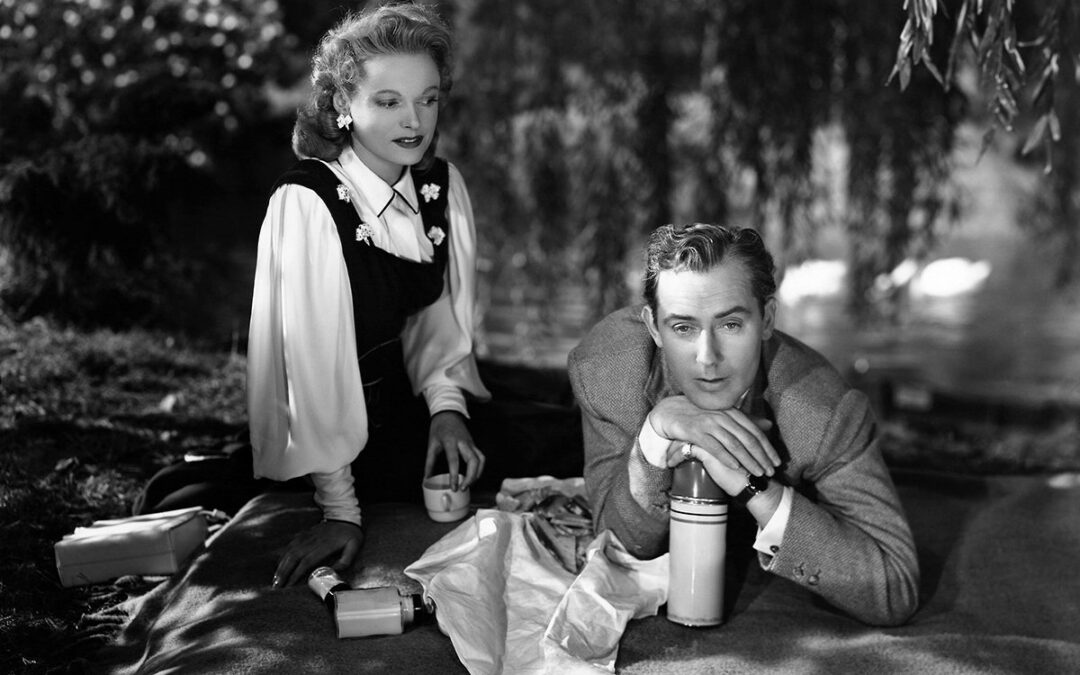 A picnic in the park is a perfect situation for accommodating a would-be lover. Suspicious that her footman Richard is not what he pretends to be, Judy allows him to picnic with him on the Serpentine in Hyde Park. The conversation is rapid-fire and full of innuendo...
A picnic in the park is a perfect situation for accommodating a would-be lover. Suspicious that her footman Richard is not what he pretends to be, Judy allows him to picnic with him on the Serpentine in Hyde Park. The conversation is rapid-fire and full of innuendo...
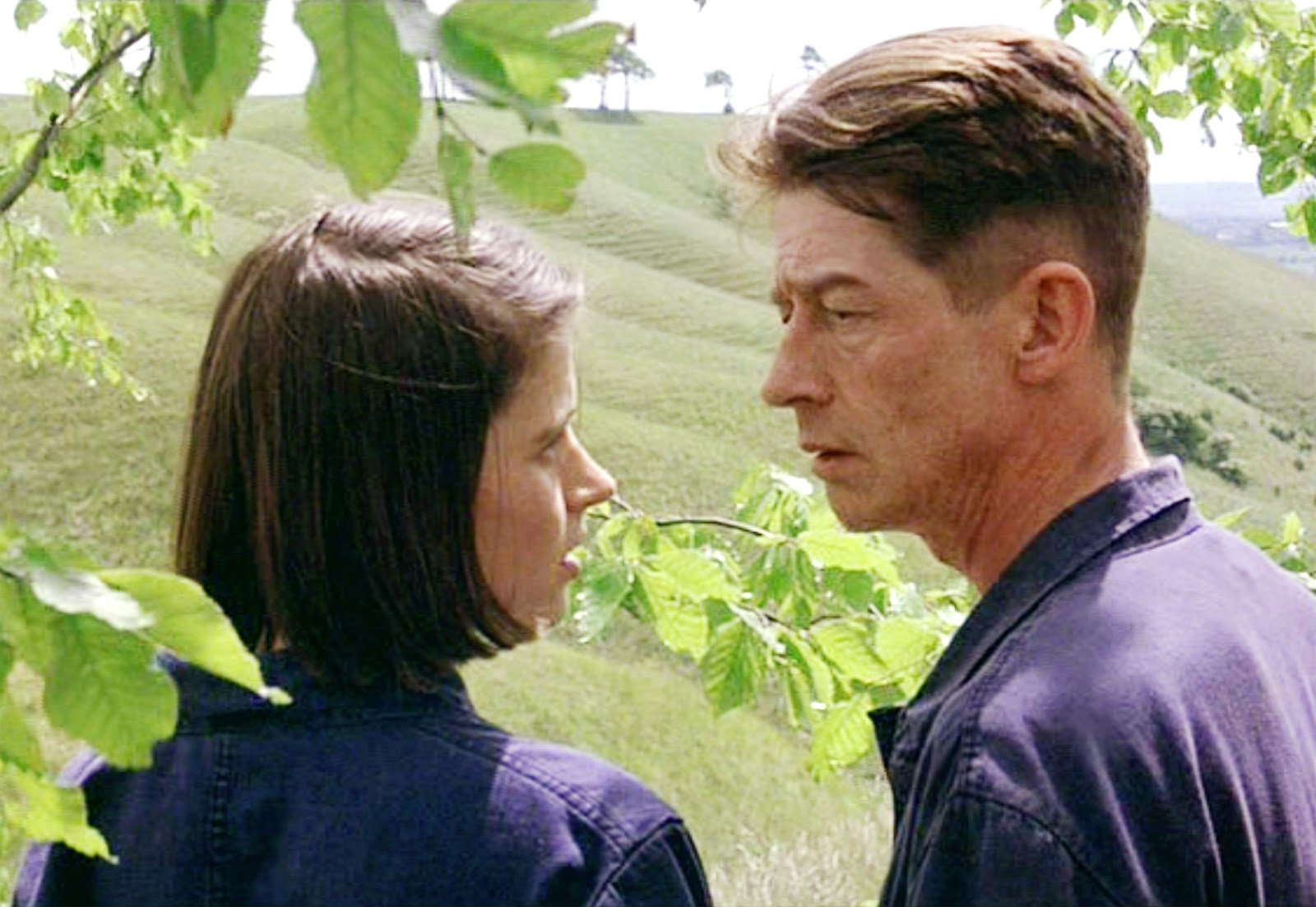 Winston Smith’s relationship with Julia (no last name) is among the most satisfying moments in Orwell’s 1984. It’s an interlude of romantic entanglement that begins a lustful relationship ending in pain and utter defeat. Leaving the dust of London for a safe place in...
Winston Smith’s relationship with Julia (no last name) is among the most satisfying moments in Orwell’s 1984. It’s an interlude of romantic entanglement that begins a lustful relationship ending in pain and utter defeat. Leaving the dust of London for a safe place in...
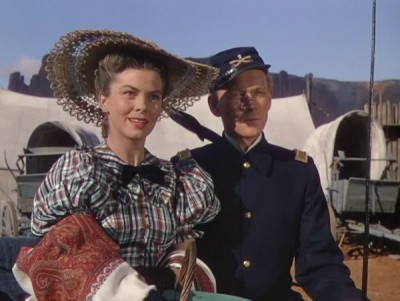 Ford’s jokey picnic episode is among the best. It plays counter to expectations because the picnic never happens. The situation is built around a conflict of rivals at an Army cavalry outpost in the 1870s. Miss Olivia Dandridge is flirting with Lt. Pennell and...
Ford’s jokey picnic episode is among the best. It plays counter to expectations because the picnic never happens. The situation is built around a conflict of rivals at an Army cavalry outpost in the 1870s. Miss Olivia Dandridge is flirting with Lt. Pennell and...
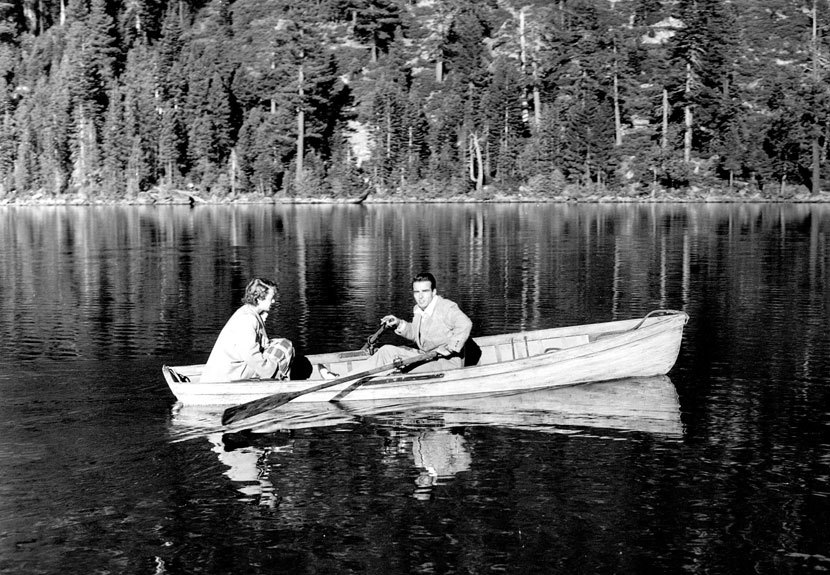 Stevens’s A Place in the Sun is a rework of Dreiser’s An American Tragedy. He renames the characters, too, so that Clyde Griffiths becomes George Eastman. It’s like renaming Dorothy in The Wizard of Oz or Tarzan. He and his screenwriters are emphatic...
Stevens’s A Place in the Sun is a rework of Dreiser’s An American Tragedy. He renames the characters, too, so that Clyde Griffiths becomes George Eastman. It’s like renaming Dorothy in The Wizard of Oz or Tarzan. He and his screenwriters are emphatic...
 Stevens’s A Place in the Sun is a rework of Dreiser’s An American Tragedy. He renames the characters, too, so that Clyde Griffiths becomes George Eastman. It’s like renaming Dorothy in The Wizard of Oz or Tarzan. He and his screenwriters are emphatic...
Stevens’s A Place in the Sun is a rework of Dreiser’s An American Tragedy. He renames the characters, too, so that Clyde Griffiths becomes George Eastman. It’s like renaming Dorothy in The Wizard of Oz or Tarzan. He and his screenwriters are emphatic...
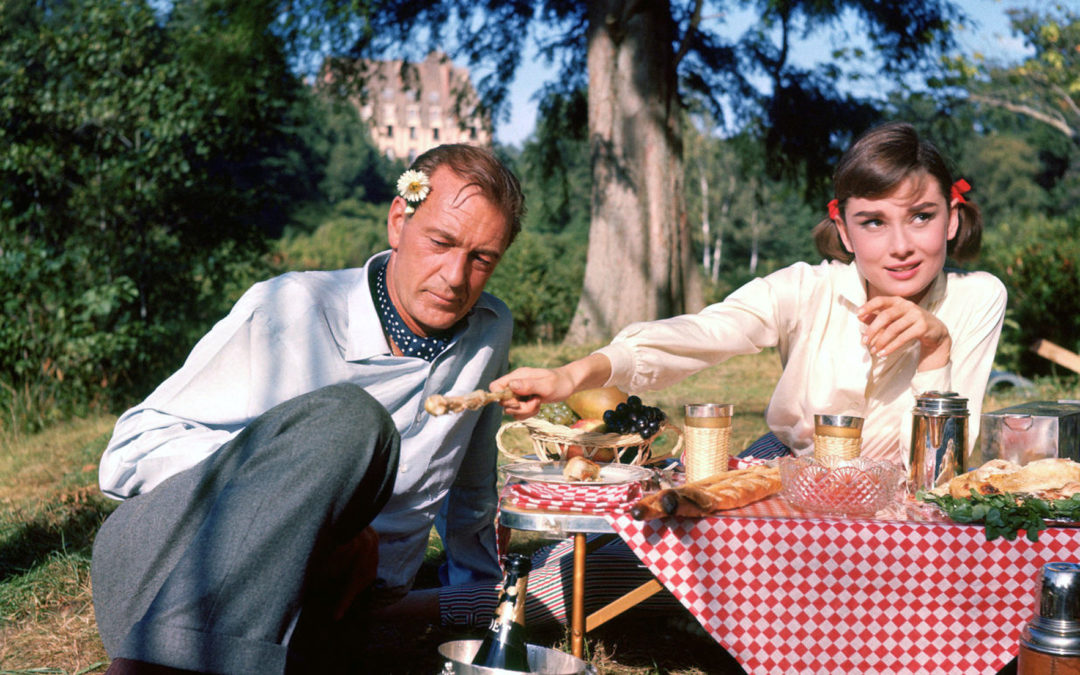 Wilder added the picnic to Love in the Afternoon as a setting for comic action and romantic courtship. His sources for the film Paul Anet’s Ariene, juene file Russe (1920), and Paul Czinner’s film adaption The Loves of Ariene (1931) do not have picnics....
Wilder added the picnic to Love in the Afternoon as a setting for comic action and romantic courtship. His sources for the film Paul Anet’s Ariene, juene file Russe (1920), and Paul Czinner’s film adaption The Loves of Ariene (1931) do not have picnics....
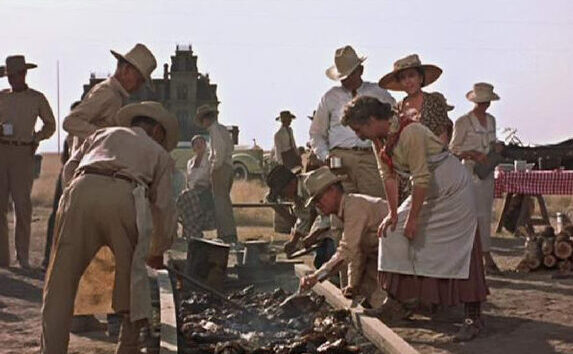 Stevens’ barbacoa picnic in Giant is sure-fire-cinema. When Virginia-born-and-bred Leslie Lynnton attends her first Texas picnic, she faints. Barbacoa is an acquired taste at a picnic or elsewhere. It may be delicious, but it is not for the squeamish. Leslie...
Stevens’ barbacoa picnic in Giant is sure-fire-cinema. When Virginia-born-and-bred Leslie Lynnton attends her first Texas picnic, she faints. Barbacoa is an acquired taste at a picnic or elsewhere. It may be delicious, but it is not for the squeamish. Leslie...
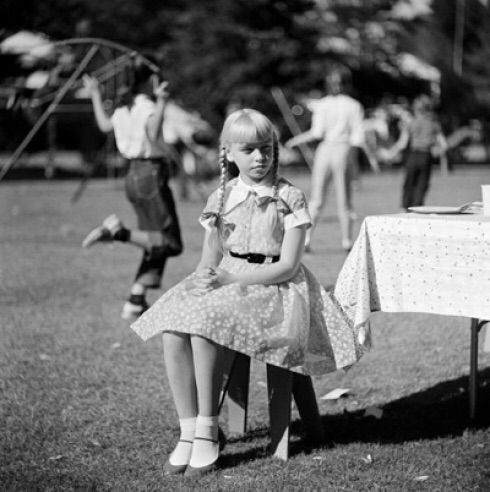 The horror of LeRoy’s The Bad Seed is serial killer Rhoda Penmark, a darling little girl with blond pigtails and blue eyes who murders a classmate at a school picnic because she covets his penmanship medal (pun intended). The picnic food is present but...
The horror of LeRoy’s The Bad Seed is serial killer Rhoda Penmark, a darling little girl with blond pigtails and blue eyes who murders a classmate at a school picnic because she covets his penmanship medal (pun intended). The picnic food is present but...
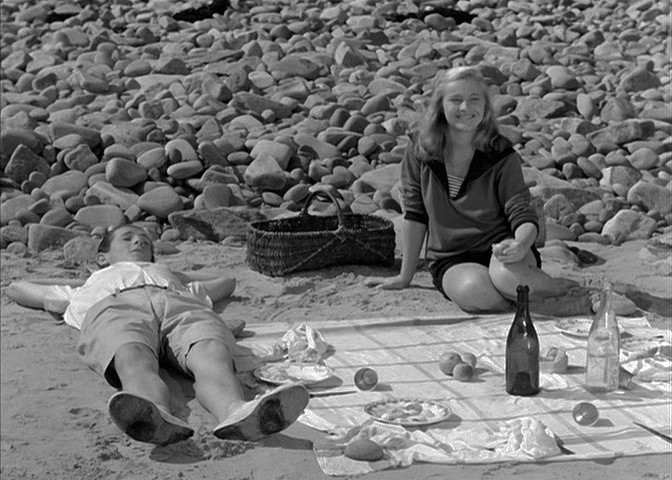 Autant-Lara’s Le Blé en herbe is good at separating the dual aspects of love in Colette’s novel about adolescents and friends for years and learning about love while vacationing in Normandy. There are two parts to the narrative. In the first part, teenagers Philippe...
Autant-Lara’s Le Blé en herbe is good at separating the dual aspects of love in Colette’s novel about adolescents and friends for years and learning about love while vacationing in Normandy. There are two parts to the narrative. In the first part, teenagers Philippe...
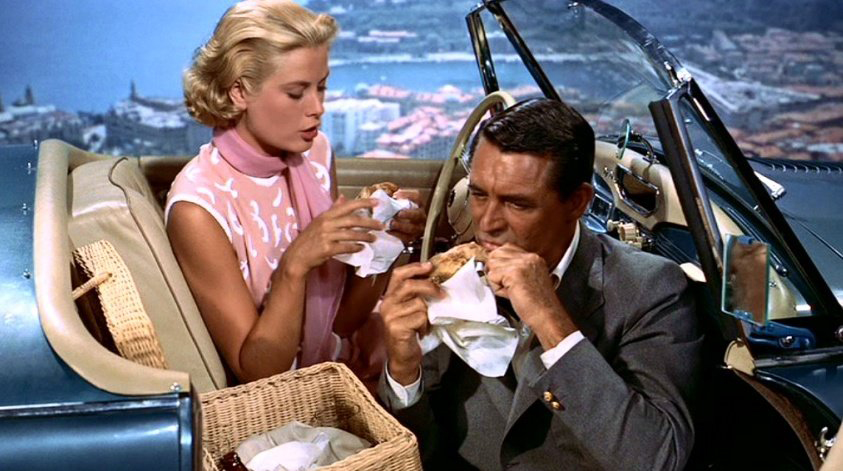 David Dodge and Alfred Hitchcock had differing views on the character of John Robie, aka The Cat, and the hero of To Catch a Thief. Dodge disguised the thirty-four-year-old to look older and plumper; for his film, Hitchcock chose fifty-one-year-old Cary Grant to play...
David Dodge and Alfred Hitchcock had differing views on the character of John Robie, aka The Cat, and the hero of To Catch a Thief. Dodge disguised the thirty-four-year-old to look older and plumper; for his film, Hitchcock chose fifty-one-year-old Cary Grant to play...











